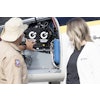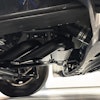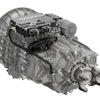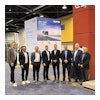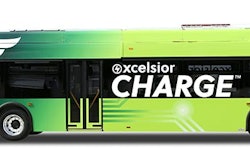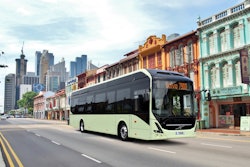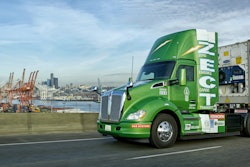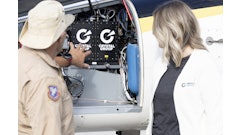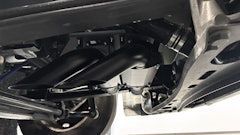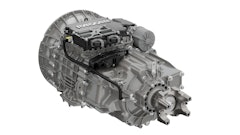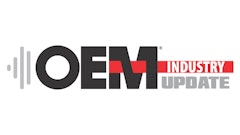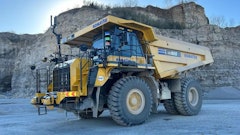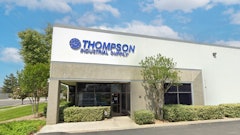New Flyer Industries Inc. (NFI Group), the largest bus and motor coach manufacturer and parts distributor in North America, announces its order activity and backlog update for the 13-week period ended December 31, 2017 (Q4 2017). Year-over-year comparisons reported in this release compare Q4 2017 to the 13-week period ended January 1, 2017 (Q4 2016).
The NFI Group order and delivery activity and backlog for Q4 2017 reported in this release includes activity for: transit buses manufactured by New Flyer subsidiaries ( New Flyer), motor coaches manufactured by its Motor Coach Industries subsidiaries (MCI) and aftermarket parts and services sold by its aftermarket organization (NFI Parts). Also included for the first time is activity for cutaway and medium-duty buses manufactured by its ARBOC Specialty Vehicles, LLC subsidiary (ARBOC), since its acquisition on December 1, 2017. Each ARBOC vehicle is considered to be one equivalent unit (EU).
The order and delivery activity and backlog as reported excludes pre-owned motor coaches.
Deliveries, Order Activity, and Option Expiry
NFI Group delivered 1,068 EUs in Q4 2017, an increase of 75 EUs compared to Q4 2016 and an increase of 191 EUs over the third fiscal quarter of 2017 (Q3 2017). Total inventory at December 31, 2017 was 482 EUs, a decrease of 84 EUs from the previous quarter.
NFI Group’s new orders (both firm and options) in Q4 2017 totaled 2,520 EUs. Order activity in the period included:
- New firm orders for 901 EUs (valued at $434.0 million)
- New option orders for 1,619 EUs (valued at $748.3 million)
- 238 option EUs were converted to firm orders (valued at $117.1 million)
NFI Group’s last 12 months (LTM) Book-to-Bill ratio (defined as new firm and option orders divided by deliveries) was 152% and has been greater than 100% for 14 straight quarters, demonstrating overall growth in total backlog.
In addition, 273 EUs of new firm and option orders were pending from customers at the end of the period, where approval of the award to New Flyer had been made by the customer’s board, council, or commission, as applicable, but purchase documentation had not yet been received by New Flyer and therefore not yet included in the backlog.
The majority of public transit contracts have a term of 5 years and include both firm orders and options.
Total Backlog
At the end of Q4 2017, NFI Group’s total backlog was 12,157 EUs (valued at $6.02 billion) compared to 10,537 EUs (valued at $5.39 billion) at the end Q3 2017, and 10,187 EUs (valued at $5.23 billion) at the end of Q4 2016.
NFI Group’s total backlog consists of buses and motor coaches primarily for public customers. Buses and motor coaches incorporating clean propulsion systems (such as natural gas, diesel-electric hybrid, electric-trolley, and battery-electric) represent approximately 50% of the total backlog. Zero-emission buses and motor coaches (battery-electric, fuel cell-electric and electric-trolley) represent approximately 4.5% of total backlog.
Market Demand
NFI Group’s Bid Universe metric reports active public sector competitions in Canada and the United States, and provides an overall indicator of active bid activity and expected heavy-duty transit bus and motor coach market demand. It is a point-in-time snapshot of: (i) EUs in active competitions, defined as all requests for proposals received and in process of review plus bids submitted and awaiting customer action, and (ii) management’s forecast based on public customer projection of expected EUs to be placed out for competition over the next 5 years.
At the end of Q4 2017 the number of active EUs was 4,778 EUs and total Bid Universe was 21,184 EUs. Procurement of heavy-duty transit buses and motor coaches by the public sector is typically accomplished through formal multi-year contracts, while procurement by the private sector is typically through transactional sales. As a result, NFI Group does not publish a Bid Universe metric for private sector buses and motor coaches.
The sale of cutaway and medium-duty buses manufactured by ARBOC are accomplished on a transactional purchase order basis through third party dealers who hold contracts directly with the customers. Bids are submitted by and agreements are held with a network of dealers and therefore cutaway and medium-duty bus activity is not included in the Bid Universe metric.
Parts Activity
Total parts shipments by NFI Parts for Q4 2017 increased by 5.1% compared to the previous quarter, and increased by 7.5% compared to Q4 2016.
Gross parts orders received by NFI Parts in Q4 2017 increased by 1.8% compared to the previous quarter, while increasing by 10.3% over Q4 2016.
For 2017, ARBOC aftermarket parts orders and shipments were not material and not included in these figures.
Outlook
Management continues to expect that transit bus, cutaway and medium duty buses, and motor coach procurement activity by public transit agencies throughout the U.S. and Canada to remain robust based on an aging fleet, overall economic conditions, expected customer fleet replacement plans, and active or anticipated procurements.
Management continues to anticipate stable private sector demand for motor coaches through 2018 given healthy market dynamics including the economy, travel trends and credit markets.
As the population ages and ease of access becomes more of a focus, management also believes the demand for low-floor cutaway and medium-duty buses with greater accessibility will grow from it’s current level of 5% of the total market, following the migration that occurred in heavy-duty transit bus space.
NFI Group’s master production schedule combined with current backlog and orders anticipated to be awarded by customers under new procurements is expected to enable NFI Group to deliver approximately 4,350 EUs in fiscal 2018 with production rates varying from quarter to quarter due to product mix and award timing.
Following Daimler’s recent decision to terminate MCI’s Setra Distribution Rights Agreement (DRA), there are no sales of new Setra motor coaches planned for 2018. The DRA was established in 2012, and since then MCI has only sold a total of 282 new Setra coaches, of which 21 were sold in 2017.
With respect to parts, ongoing surveys and discussions with large parts customers continue to indicate a number of market effects including: inventory reduction strategies, budget constraints and fleet modernization efforts. Although part sales remain difficult to forecast, management expects that the parts market will remain relatively stable in 2018, but may experience quarter-to-quarter volatility as is typical for this segment of the business. As a result of the Setra DRA termination however, approximately $4 million of parts sales have been removed from the budget for the second half of 2018.
U.S. Tax Reform
As a result of U.S. tax reform in December 2017, NFI Group expects a reduction in consolidated effective tax rate (ETR). NFI Group's consolidated ETR prior to US tax reform ranged from 32-36% reflecting benefits related to interest deductions and the domestic production activities deduction which will no longer be available. Although the U.S. federal statutory tax rate decreased from 35-21%, NFI Group‘s ETR for 2018 and subsequent years is expected to be in the range of 29-31%.
This range includes U.S. state taxes which brings the combined U.S. federal and state statutory tax rate to approximately 27% and the impact related to the fact that NFI’s most significant Canadian operating entity (New Flyer Industries Canada ULC, an entity taxed in both the U.S. and Canada) will not be able to fully utilize foreign tax credits as the Canadian tax rate is now higher than the U.S. Federal tax rate. The expected ETR range can also be significantly impacted for nonrecurring items.
NAFTA
NFI Group’s manufacturing facilities operate in an integrated manner with parts and components shipping in both directions over the Canadian/U.S. border. NFI Group’s supply chain has been established to ensure compliance with the more stringent U.S. Federal Buy America requirements for rolling stock funded by FTA grants. In the case of both New Flyer and MCI public customers, a certain quantity of bus and motor coach shells are manufactured in Canada and shipped for final assembly in the United States. In the case of private sector sales, all MCI motor coaches are manufactured in Canada.
Under the current NAFTA agreement, all shells and finished buses and coaches move across the border free of any duties. Nearly all the purchased components sourced in the NAFTA region meet the current 62.5% regional content requirement and therefore also move across the border free of any duties. NFI Group today pays immaterial tariffs for non-NAFTA supply.
Any amendments that would impose duties on parts, shells and finished bus and coach could have a financial impact given materials comprise 70% of manufacturing costs and complete buses and coaches are imported to each country on a regular basis. Management continues to closely monitor NAFTA negotiations and is developing contingency plans to mitigate should changes occur to the current agreement.
